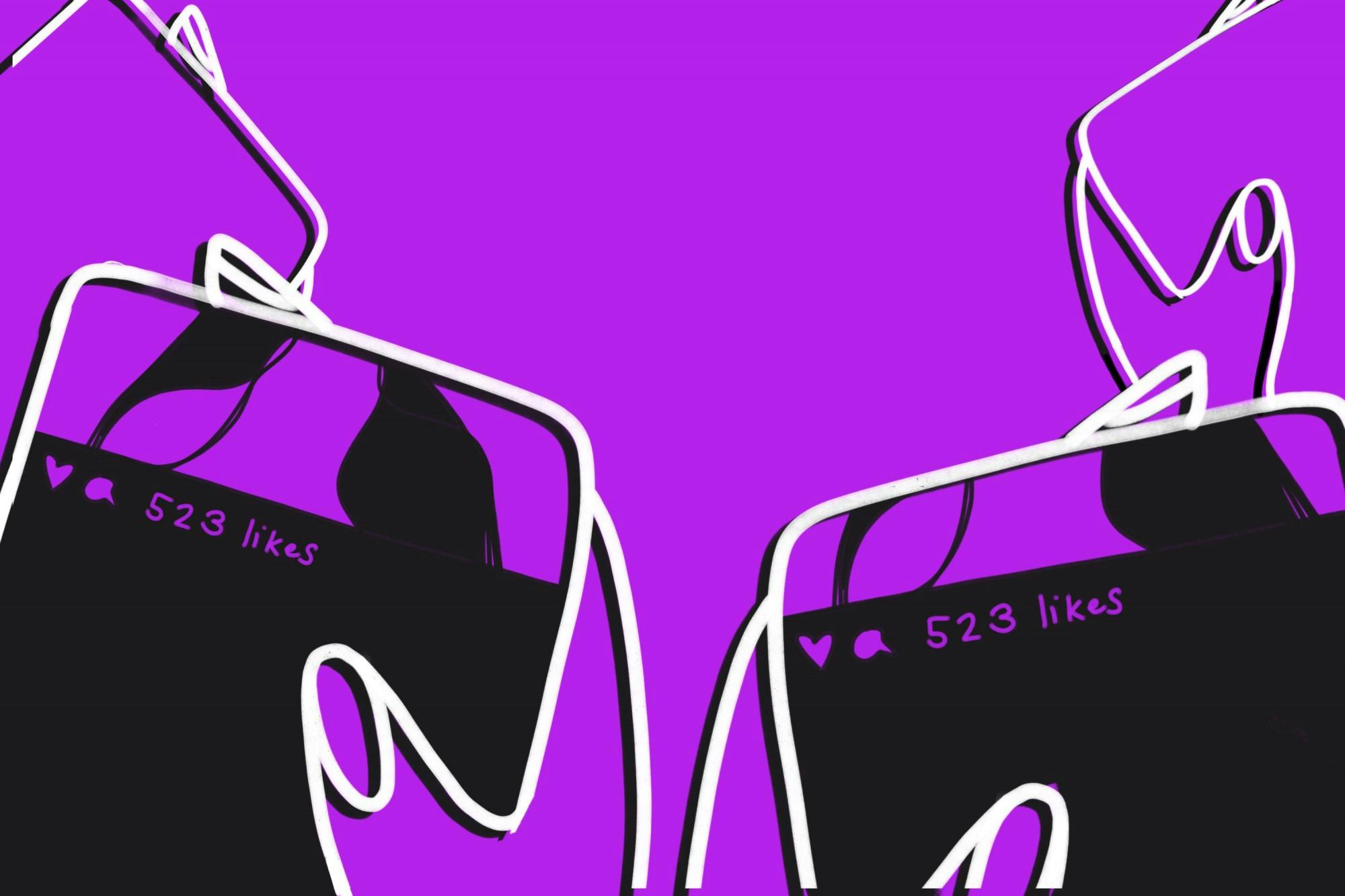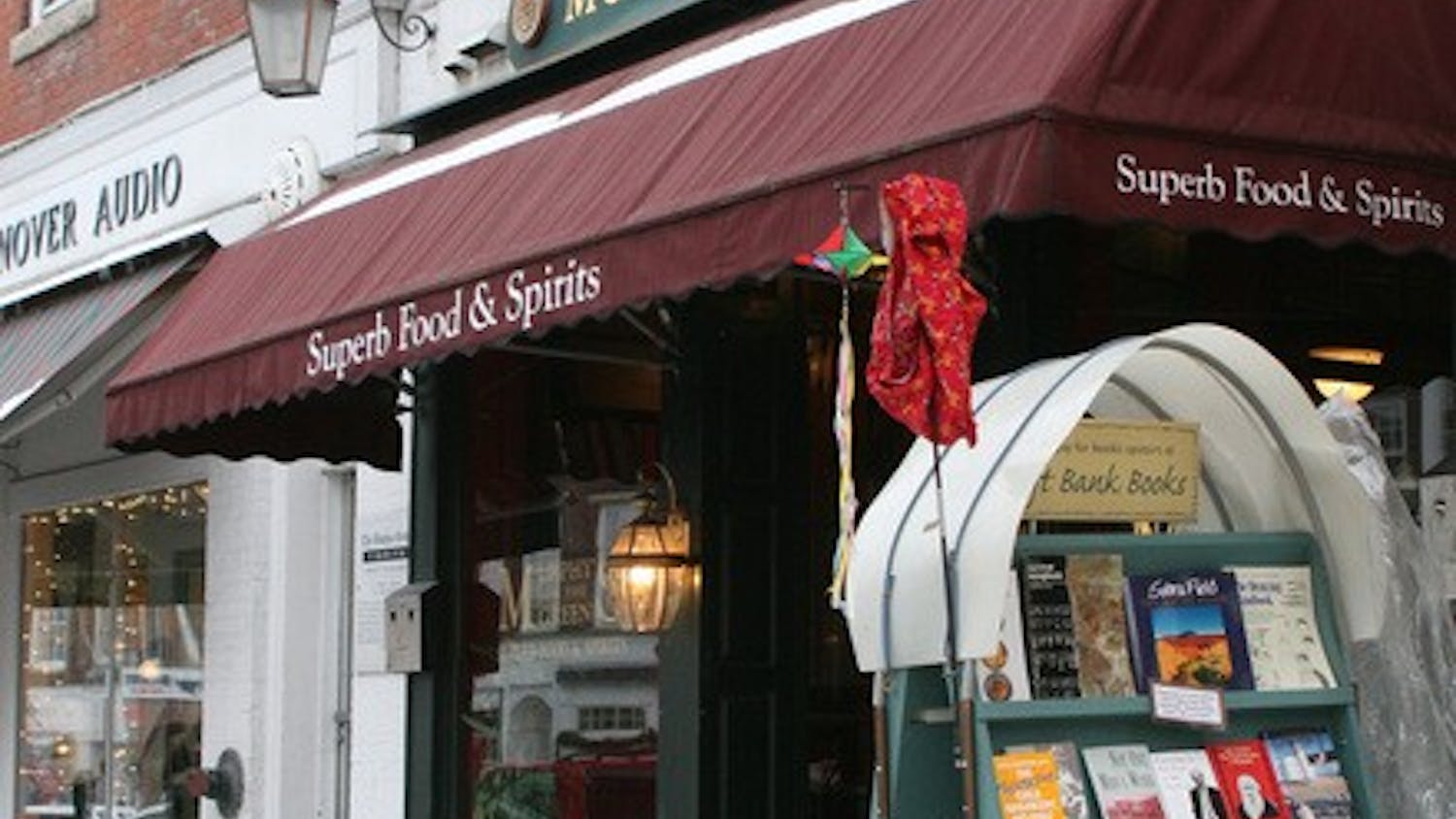We are approaching week eight and I am having an existential identity crisis. Said crisis was prompted by an internet essay on the commodification of womanhood. It triggered two self-realizations.
1. My identity as a woman consists of the superficial things (books, movies, music, clothing, etc.) I consume.
2. I don’t genuinely like the material constituents of my identity. I like the idea of liking the products and media I consume.
Let me introduce myself: “The Virgin Suicides” is my bible. Simon and Garfunkel hum the soundtrack to my life. I prefer the scent of musky cologne to that fruity, perfumy stuff. Sofia Coppola films make me nostalgic for a world that was never mine. An arrangement of A24 zine pages adorn my dorm room wall. I collect vintage slip dresses and document my life through the lens of a broken point and shoot camera. I am incapable of discerning any true sense of self apart from these aggressively gendered and romanticized interests. I have no idea who I am.
My life is dictated by aesthetics. I meticulously curate Pinterest boards and judge books by their covers. I run a dress rehearsal Instagram account to ensure that my future posts complement each other in a grid. Everything I do is painfully contrived. My identity feels like a performance crutched by the clothing I wear, music I listen to, books I read, movies I watch and photos I post. I am unable to distinguish genuine interests from aestheticized ones.
Your cool may be different from my cool. Perhaps you believe “Fight Club” is the best movie ever made and pride yourself on driving a Jeep Cherokee. Or maybe you strut around campus in platform Mary Janes and introduce yourself by your star sign (I’m a cancer, by the way.) Specifics of aesthetic aside, we are all practicing the art of societal signaling.
In the essay which inspired this article, “standing on the shoulders of complex female characters,” Rayne Fischer-Quann correlates societal signaling to commodification: “The aesthetics of consumption have, in turn, become a conduit to make the self more easily consumable: your existence as a Type of Girl has almost nothing to do with whether you actually read Joan Didion or wear Miu Miu, and everything to do with whether you want to be seen as the type of person who would.”
Do I authentically like the sound of The Velvet Underground and the taste of cigarettes? Does anyone? Or have we all been sold the misconception that being the Type of Girl who listens to avant-garde rock and smokes mid-afternoon makes you interesting?
As a woman, I have been trained to value aesthetics over principles and perception over authenticity. Nobody exits the womb lusting after gauzy prairie dresses and Diptyque perfume. Under capitalism, we have been socialized to covet material objects in chase of an aesthetic. By reframing Descartes’ “I think, therefore I am” philosophy to “I own, therefore I am,” my identity can be understood as a product of my products. While I understand that accumulating cool things does not make me cool, I feel obligated to buy into the aesthetic that grounds my identity. Like a well-oiled machine, I’ve been programmed to purchase tangible indicators of personality. “Hey, look at me! I use mango Glossier balm dot calm and listen to Joni Mitchell. We should be friends.”
I long to read like the female protagonist in an indie coming-of-age film, with all her manic pixie dream girl quirks: thrifted wardrobe, infectious smile, simultaneously ditsy and insightful one-liners, you get the gist. My infatuation with female characters has manifested in the caricature of myself that I present to society. I parody the preconceived notions of femininity that have been perpetuated by literature, film and social media because that is the only way I know how to exist as a woman in this world.
Fischer-Quann articulates similar frustrations: “I can only seem to understand myself through the fictions of the more actualized — and, just as I reassure myself that I am drawn to this media because of some predetermined, inherent sense of self, I wonder if it is creating me, too. Who would I be if I stopped consuming things? what would there be left to feel?”
I used to find comfort in my cool girl bedside table, carefully cluttered with 20th century Marxist prose, playing cards, thrifted porcelain ashtrays and lip gloss. Now I look at the perfectly effortless arrangement of stuff that greets me each morning in bewilderment of the fictionalized version of myself I have become. The girl who uses this bedside table is a stranger to me. Perhaps she doesn’t exist at all.
Writing this article involved doing the least cool thing a girl can do: fessing up to the facade. The art behind being a cool girl is in its perceived effortlessness. We compile casual photo dumps, cake our faces with natural makeup, and text in lowercase letters in an attempt to manufacture authenticity. This feigned effortlessness is detrimental to the self. It is exhausting. It is suffocating. It is the catalyst for my current state of crisis.




